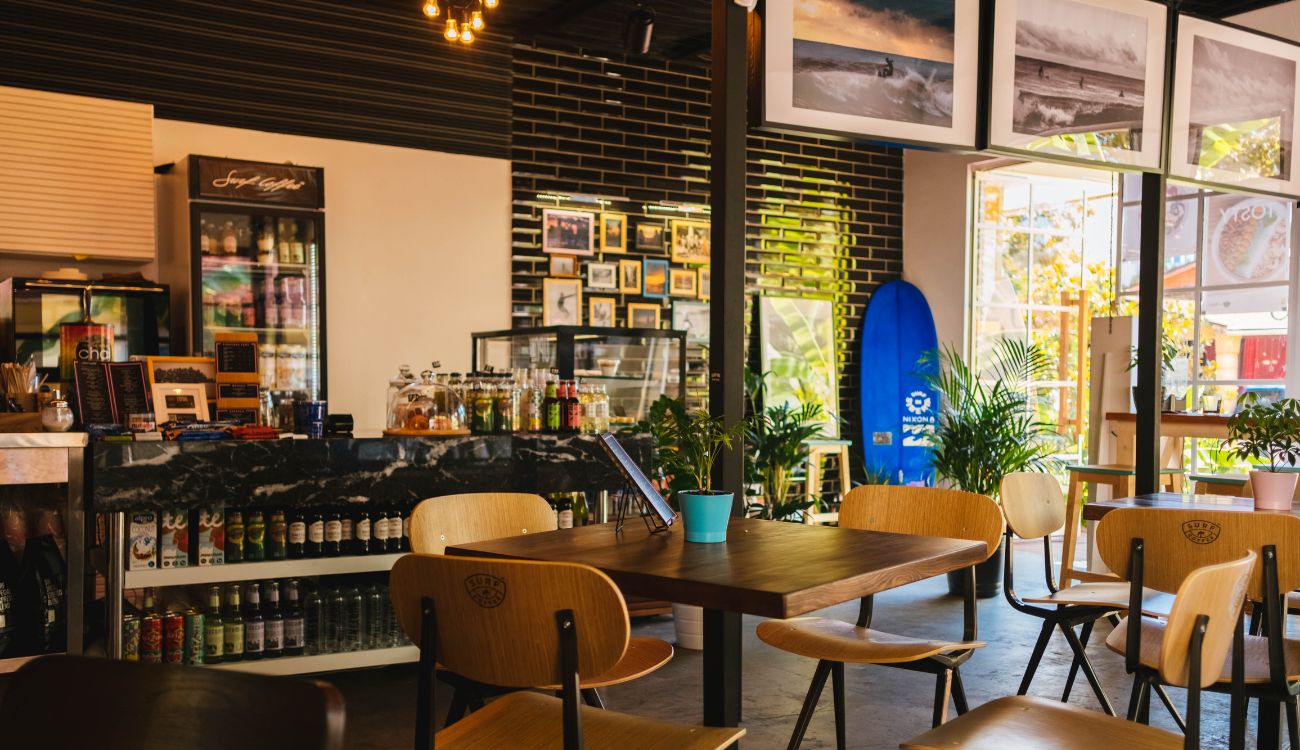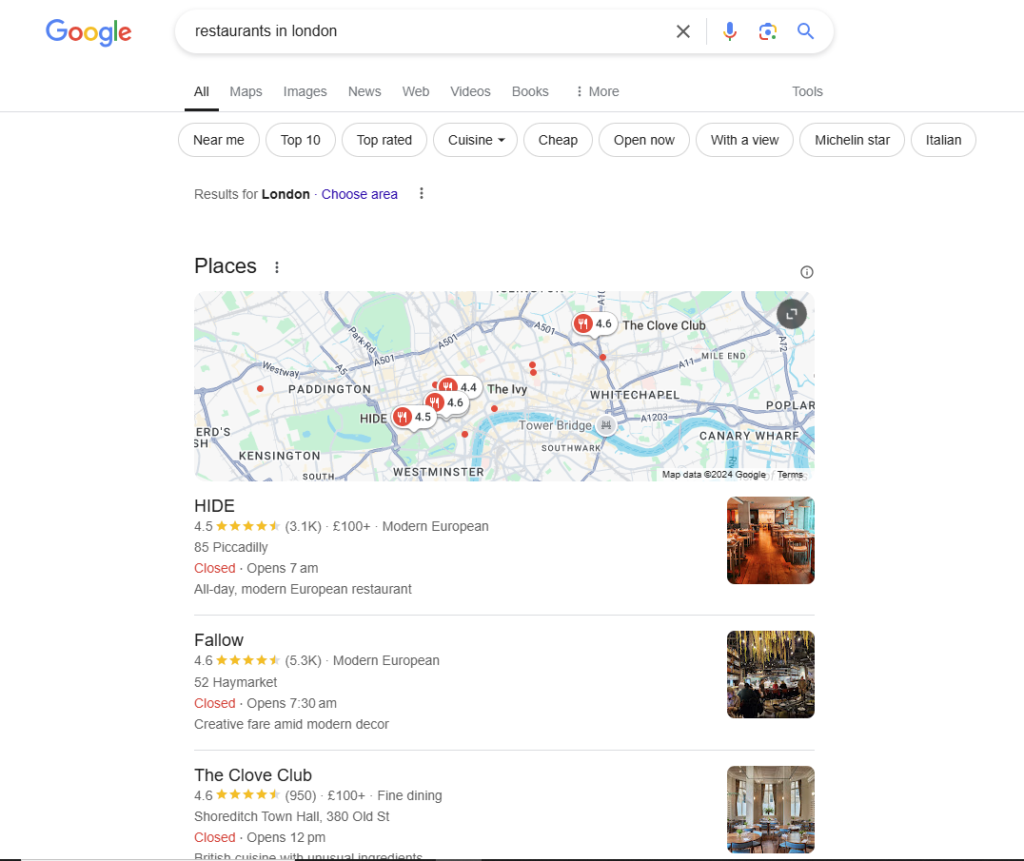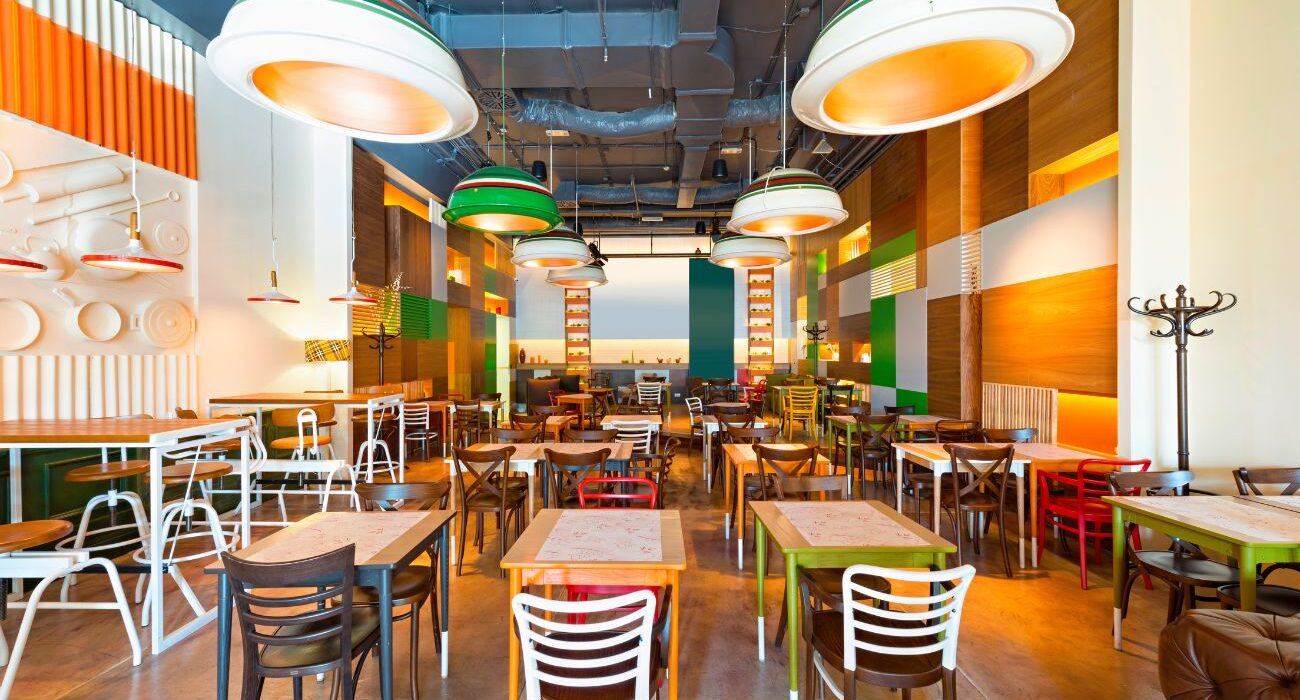Do you think restaurant SEO is important?
Have you thought of restaurant search engine optimization? What is it?
Let’s learn about all of these?
Online presence has now become the salt in the food. You can’t get compete if you are not present online. For a restaurant too a solid web presence is vital. Customers should be able to discover you quickly and effortlessly while they are looking for a restaurant or placing an order for delivery.
Restaurant SEO must be given top priority in today’s cutthroat eating environment if they want to stand out and draw patrons. Implementing a planned SEO strategy for restaurants can significantly increase your online presence, regardless of whether you’re managing a busy downtown restaurant or a small neighborhood café.
It is essential for restaurant owners to comprehend how local SEO for restaurants plays a critical part in reaching nearby customers, as the majority of diners use restaurant search engine optimization to find their next meal.
A lot of restaurant owners are increasingly concentrating on SEO to make sure their location appears highly on Google and other search engines.
Although local SEO for restaurants may seem difficult, it doesn’t have to be! There are simple strategies that can make your restaurant’s local SEO a significant source of company traffic.
If you are looking to reap better ROI, drive more traffic, rank higher in local searches, and boost online orders and reservations the key is to concentrate on restaurant SEO. In this article we will go over important hospitality SEO useful advice to make sure your restaurant gets a competitive edge online.
In this article, we’ll cover:
- What is SEO?
- The benefits of hospitality SEO for your restaurant
- Notable tips for SEO strategy for restaurants
What Is SEO?
Improving a website’s visibility and rankings in organic (unpaid) search results is known as search engine optimization, or SEO. Making it simpler for potential consumers to find you when they search for relevant terms like “best Italian restaurant near me” or “vegan brunch options in New York” is what this implies for restaurants.
While restaurant SEO and general SEO are comparable, restaurant SEO also includes some industry-specific tactics and procedures designed to support restaurant success. Due to the fact that most restaurants don’t have extensive blogs or often update their material, local SEO tactics are far more crucial in the context of restaurant SEO than they are in more general SEO methods.
Why Is SEO Important for Restaurants?

Restaurant SEO is a long-term approach, but the benefits are substantial and well worth the work. There are many advantages to investing in restaurant SEO, including:
- Increasing website traffic
- Increasing online orders and reservations
- Increasing brand visibility
- Increasing client engagement
- Eventually increasing revenue
You may take use of these advantages when your restaurant shows up in search results for pertinent keywords, such as “best pizza near me,” to improve your overall restaurant SEO approach. This enhances your reputation in the cutthroat restaurant business in addition to assisting in the discovery of new clients.
Consider SEO as an ongoing on-ramp for your restaurant’s success—a free, organic, and sustainable approach to draw in new business and promote long-term expansion. SEO expands the reach of your restaurant beyond its physical location by making it easier for potential customers to find it online. Most of the people use Google to look up restaurants, having your business prominently shown in search results could be crucial to its success.
Increased Online Visibility
When customers are looking for somewhere to dine, SEO can help them find your restaurant more easily. When prospective clients search for relevant local terms, having your business listed in the Google Local Pack puts it front and center. It gives important details about your business, such as operating hours and reviews, to assist patrons in choosing where to dine.
Cost-Effective Marketing
Eatery Other than the time and effort required to do the task, SEO doesn’t need to cost anything. SEO is a cost-effective approach that prioritizes long-term outcomes and unpaid growth when compared to advertising paid advertisements. While paid advertisements can be fast fixes, SEO provides long-term benefits that allow you to spend less money.
Accessible After Hours
Your restaurant’s website, Google Business Profile (GBP), and online listings are constantly accessible, so prospective patrons can find and learn more about it whenever they want—even after hours. For instance, even when your restaurant is closed, patrons can still view your menu, business hours, and contact details thanks to an optimized GBP.
Notable Restaurant SEO Tips to Help Your Website Rank Higher

-
Create a Keyword Planning Roadmap
Determine which keywords your restaurant should rank for first. Similar to “restaurants in New York City,” these keywords might also be more specific, such as “best delivery NYC.” To determine the search phrases that your potential clients are using, use tools such as Google Keyword Planner, Ahrefs, Ubersuggest, SEMrush, etc. These important keywords are frequently the foundation of local SEO for eateries.
Make sure to use both unbranded terms that represent the kinds of food or services you provide and branded terms (such as the name of your restaurant). By doing this, you build a solid basis for your SEO efforts for your restaurant.
-
Optimize for Local SEO
Given that the majority of searches are location-based, local SEO is essential for eateries. Google searches for “best seafood restaurant in Toronto” are, for instance, typically local. Make sure the information about your company is correct and consistent on Yelp, TripAdvisor, Google Business Profile, and other internet directories.
Your chances of ranking highly in local search results and showing up in Google’s Local Pack are increased by this consistency, which aids Google in determining that your restaurant is a genuine local business. Restaurant’s internet visibility can be strengthened by optimizing for hospitality SEO in local directories.
-
Promote and list your restaurant on review websites.
Your ranks in local search results might be considerably raised by positive reviews. Encourage pleased clients to post reviews on TripAdvisor, Yelp, WorkApp and Google. The more positive reviews you have, the more reliable and inviting your restaurant appears to Google and potential consumers. This is because Google frequently considers customer ratings as a ranking component for local SEO.
Research indicates that including reviews in search results can also boost your click-through rate (CTR), which will drive more people to your website and physical store.
-
Increase Website Backlinks
Backlinks, which are links pointing to your restaurant’s website from other websites, tell search engines that your website is reliable and authoritative. Ask local culinary critics, bloggers, and hospitality websites to include your business and provide a link to it. Your search rankings can be significantly impacted by even modest backlinks from regional media and blogs dedicated to hotel SEO.
-
Optimize Your Website for Mobile
Your restaurant’s website needs to be responsive and mobile-friendly in the mobile-first world of today. Potential clients might leave your website and go for another restaurant if it is hard to use on a phone. Another important Google ranking criteria is a mobile-friendly website, particularly for local queries.
-
Verify the Smoothness of Your Online Ordering System
A user-friendly online ordering system is essential for increasing business. Customers may leave a website with a high bounce rate if they have trouble placing a purchase, which will hurt your results. Make sure there are no obstacles or problems during the ordering process by properly testing your online ordering system.
-
Include Schema Markup on Your Website
Schema markup is code that improves understanding of your website’s content by search engines. Google may display pertinent information about restaurants directly in search results by including schema markup for menus, reviews, and operating hours. This can make you more visible in search results, particularly in local SEO scenarios where more clicks may come from the additional information.
-
Use Content That Is Location-Specific
Make material that focuses on area landmarks, events, and local communities to increase restaurant SEO. For example, you may create blog entries on your city’s food festivals or the activities your restaurant participates in. Local SEO benefits greatly from this type of location-specific content, which can make your restaurant show up in searches for nearby events and activities.
-
Make Use of Excellent Photos and Videos
For restaurants, visual material is vital. Videos showcasing your restaurant’s ambience, high-quality images of your food, and behind-the-scenes photography can boost interaction and improve your website’s appeal to prospective clients. Additionally, these photos appear in Google’s image search, which may increase website traffic even further.
-
Maintain Consistency in Your NAP Information
All directories, listings, and your website must have the same version of your Name, Address, and Phone number (NAP). Your local SEO efforts may be harmed by inconsistent information that confuses search engines. Since precise contact information is necessary for booking and reservations, this is particularly crucial for SEO in the hospitality industry.
-
Track Your SEO Results
Use tools such as Google Analytics and Google Search Console to monitor your restaurant’s SEO efforts. To be sure your restaurant SEO plan is working, keep an eye on indicators like organic traffic, bounce rate, and keyword ranks. Over time, you can increase your performance by making the necessary adjustments.
Long-Term Benefits of Restaurant SEO
Despite requiring a sustained investment, SEO offers significant advantages. A restaurant’s website traffic, online orders, brand exposure, and customer interaction all rise with an effective SEO plan. With long-term effects without the continuous expenses of sponsored advertisements, SEO is also a cost-effective marketing technique.
Wrapping Up
By putting restaurant SEO tactics into practice, you can make your restaurant stand out in local search results, draw in more business, and expand your clientele. By making your website mobile-friendly, promoting reviews, constructing backlinks, and optimizing for local SEO for restaurants, you can have a powerful online presence that increases foot traffic and online sales.
You can stay ahead of the competition and make sure your company succeeds in a crowded market by implementing an SEO plan tailored to the restaurant and hospitality SEO sectors. Long-term success for your restaurant can be achieved through SEO, which can become one of your most useful marketing tools with constant work and observation.

